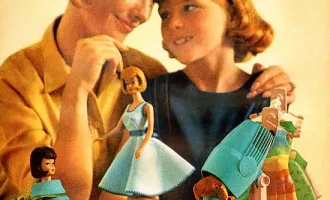A Young Voter's Take on the First 2012 Presidential Debate
During the first presidential debate on Sept. 3, both President Barack Obama and the Republican challenger Mitt Romney sought to draw a sharp contrast between their candidacies, pointing out their different positions on taxes, Medicare and the role of government. Where both candidates appeared to find common ground, however, was in their outpouring of attention on the well-being of the “middle class.”
In his opening salvo, President Obama characterized his challenger’s economic plan as based on a $5 trillion tax cut and questioned how this loss of revenue would affect the middle class. He then gave a stark choice for voters come November, asking, “Are we going to double down on the top-down economic policies that helped to get us into this mess, or do we embrace a new economic patriotism that says, ‘America does best when the middle class does best?’ ”
Not to be outdone, Mr. Romney batted aside the president’s accusations, instead focusing his message on the people whom his policies would benefit. “My view is that we ought to provide tax relief to people in the middle class,” he said. Mr. Romney then elaborated that even though his number one principle was not to cut taxes in a way that would add to the deficit, he wanted to “reduce the burden being paid by middle-income Americans.”
In the home stretch of the presidential election, both campaigns are redoubling their efforts not only to target the sliver of voters in a handful of key states who have not yet made up their minds, but also to energize their supporters to donate the money and time that can give either candidate the edge in this tightly-contested race. From this perspective, honing in on the mythos of the middle-income, American nuclear family makes good political sense. It’s reassuring. It’s relatable. It’s real clear politics.
Missing from this message, however, is acknowledgment of the great diversity of the people struggling in America today. One particularly stark omission from this first debate, billed as addressing issues of “domestic policy,” was any serious discussion of what either candidate would do to advance the interests of those who fell below the purported middle class. (To be fair, the definition of “middle class” is quite nebulous, meaning different things to different people. A 2005 New York Times survey found that 67% of its respondents said they were “middle” or “upper-middle” class, suggesting that middle class-dom may be very much a state of mind.)
In rebutting President Obama’s criticism of his tax plan, Mr. Romney argued that he would not reduce the taxes paid by high-income individuals, who would do fine regardless of who was president. Instead, he claimed that, “The people who are having the hard time right now are middle-income Americans. Under the president’s policies, middle-income Americans are being buried.”
The core message of this argument seems to disregard the acute challenges faced by the 15.9% of Americans whose income fell below the Census Bureau’s poverty guidelines in 2011. While those in the middle-income bracket undoubtedly endured significant hardships in the past four years, so did the millions of individuals and families who work low wage jobs with diminishing financial support from the government.
During the debate, this emphasis on the economic challenges of the middle class at the expense of others was a bipartisan affair. President Obama used the term “middle class” 19 times during the debate, edging out Mr. Romney’s 12 references to “middle-income” or “middle-class” Americans. However, the president made no reference to those that might fall below common understandings of the “middle class.” Mr. Romney, in contrast, made five references to “low-income” people or the “poor.”
However, when Mr. Romney did bring the poor into the conversation, he did so solely in the context of arguing against expanding the role of the federal government. Mr. Romney argued that states could do a better job of caring for their poor than the president’s plan of growing Medicaid benefits through the Affordable Care Act. Even in these discussions on health care, both candidates chose to focus their attention on the fate of Medicare, a very important issue for the vote-rich demographic of older voters.
Clearly, the rhetoric of presidential debates is a better exemplar of stagecraft than policy positions, especially at a time so close to Election Day. Nevertheless, the striking focus on the plight of the middle class at the expense of even mentioning the unique economic challenges faced by the working poor—or females, people of color and undocumented workers for that matter—does a disservice to both candidates’ claim to want to represent all Americans.


